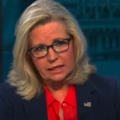The Bill and Its Broad Strokes
The proposed legislation mandates that companies with annual net incomes exceeding $1 million must reduce their use of packaging that ends up in landfills or waterways by 50% within the next 12 years. Moreover, it proposes hefty fees on plastic usage with the intent to bolster recycling efforts. At first glance, the environmental intentions behind this bill appear commendable. Yet, beneath the surface lies a slew of unintended consequences that could place undue burdens on both producers and consumers.
Economic Impact on Suppliers
From an economic perspective, the bill is poised to impose significant challenges for food suppliers. The food industry, which often relies on plastic packaging for its cost-effectiveness and practicality, could face increased operational costs. These costs stem not only from the need to find alternative packaging solutions but also from potential fees tied to existing packaging practices. Such financial strains are particularly concerning for small business owners, who operate on thinner margins compared to their larger counterparts.
Critics argue that instead of heavy-handed regulations, incentives for adopting environmentally friendly practices could be more effective. This approach would encourage innovation and voluntary adoption of sustainable methods without the immediate financial shock that the bill proposes. It’s a sentiment echoed in sectors beyond the dairy aisles, indicating a broader discontent with the state’s strategy on environmental issues.
Food Safety and Waste Concerns
Beyond the economic ramifications, there are valid apprehensions regarding food safety and increased food waste. Plastic packaging, despite its environmental drawbacks, serves critical functions: preserving the freshness of food, extending shelf life, and preventing contamination. By eliminating single-use plastic wraps, particularly for items like cheese that require certain humidity and temperature conditions, the risk of spoilage and contamination escalates. This not only affects product safety but could also lead to a paradoxical increase in food waste—a result starkly at odds with the environmental goals the bill ostensibly aims to achieve.
The potential rise in food waste also carries implications for landfills. With more products spoiling before they can be consumed, the volume of waste could swell, countering any positive environmental impacts gained from reducing plastic use. Thus, the bill could inadvertently exacerbate the very problem it seeks to mitigate.
Broader Implications and Community Reactions
The community response to this legislation has been mixed, with a notable divide along political lines. Proponents laud the bill as a necessary step toward sustainability, while opponents view it as an overreach that complicates consumer choices without providing real solutions to climate change. Notably, similar measures in states like California and Maine have shown that such policies often lead to higher consumer costs and logistical headaches without substantial environmental payoff.
The pushback from various industries—including food manufacturers and supermarkets—highlights the widespread concern over the bill’s feasibility and its approach to environmental policy. For example, representatives from the supermarket industry have voiced concerns about the shift towards non-packaged goods, emphasizing that such changes could disrupt shopping habits without adequate alternatives in place.
Final Thoughts
As New York moves closer to potentially enacting the Packaging Reduction and Recycling Infrastructure Act, the debate continues to intensify. While the intent behind the bill—to reduce plastic waste—is undeniably important, the methods and implications warrant a closer examination. Without considering the economic impacts, food safety issues, and potential for increased food waste, the legislation may do more harm than good.
Let us know your thoughts in the comments below!














Trash Dumps could be mined for metals.
A nuclear powered tracked pulverizer can seperate lose light paper and plastic, grind up the rest, send to a smelter to burn, melt and cast ingots for refinement.
Musk could do this!
Those wackos don’t care about the environment, they want total control over everyone and everything so they can enrich themselves and rule over us “peons”!!!!! They are EVIL, minions of satan!!!!!!!!!!
It would be better to end recycling. The only thing in your normal trash that should be recycled ar metal, especially aluminum. Burn everything else.
Ever follow a “recycling” truck to see where it goes? Straight to the landfill. Recyclables don’t pay anything, especially since China doesn’t take our trash any more.
Do any of these climate protesters have a real job?
Do any of these Hamas supporters have a real job?
In MY opinion, these N.Y. MORONS sitting, pushing a pencil , dreaming up more ways the SCREW the taxpayers out of more of their money, and install more REGULATIONS, perhaps they should concentrate on ridding this country of the HORDES of ILLEGALS ALIENS, and work to secure the borders. (both south and north.)
I agree they have no idea what they are doing. If it sounds good then do it. But it does not work that way. Before submitting this trash they should look at all scenarios to see how it will fit into this fiasco. Sure you may stop some plastic from going to the dump but what about things that will now spoil and that go to the dump instead. So you will now have more that will fill up the landfill faster. And then add the extra cost for producers, customers and the the cost of having an additional landfill, probably many more.
And you wonder why there was a story this week about a girl complaining about a $7.00 apple!!
This kind of legislation is the reason!
These things HAVE TO BE exposed for the stupid overreach they are!
WE HAVE TO get back to sanity in this country or we’re going to be doomed!
(Frightening that these politicians in NY believe this is a good thing – and an actual problem!)